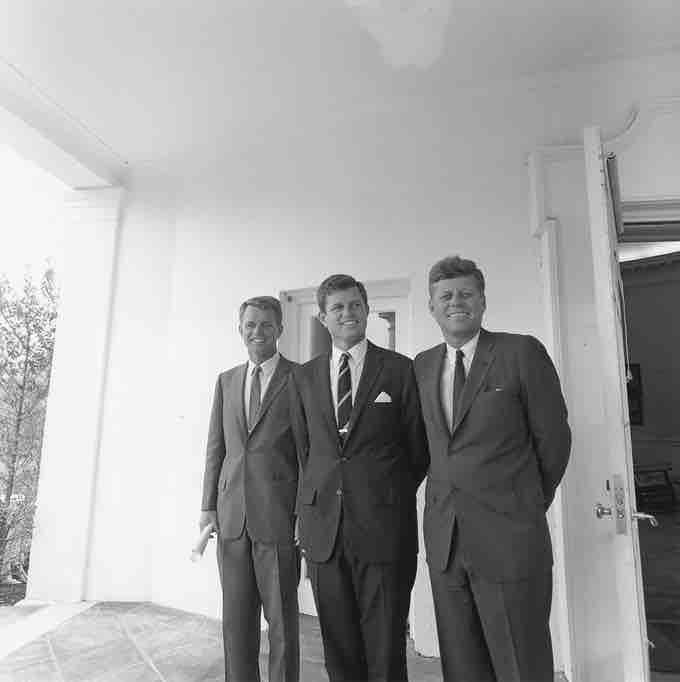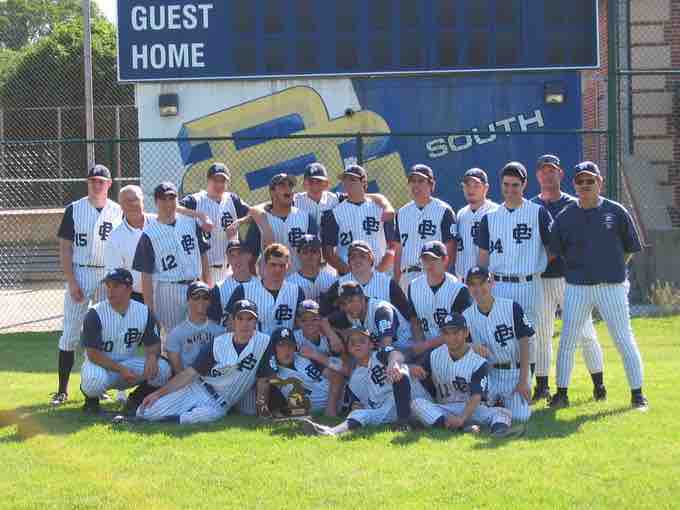Family
Family is the first agent of socialization. Mothers and fathers, siblings and grandparents, plus members of an extended family, all teach a child what he or she needs to know. For example, they show the child how to use objects (such as clothes, computers, eating utensils, books, bikes); how to relate to others (some as "family," others as "friends," still others as "strangers" or "teachers" or "neighbors"); and how the world works (what is "real" and what is "imagined"). As you are aware, either from your own experience as a child or your role in helping to raise one, socialization involves teaching and learning about an unending array of objects and ideas.

Family Participation in Politics
Members of the Kennedy family have been prominently involved in politics for over a century, illustrating how the desire to participate in politics can be passed on generationally. Family is an important agent of political socialization.
School
Most American children spend about seven hours a day, 180 days a year, in school, which makes it hard to deny the importance school has on their socialization (U.S. Department of Education 2004). Students are not only in school to study math, reading, science, and other subjects—the manifest function of this system. Schools also serve a latent function in society by socializing children into behaviors like teamwork, following a schedule, and using textbooks.School and classroom rituals, led by teachers serving as role models and leaders, regularly reinforce what society expects from children. Sociologists describe this aspect of schools as the hidden curriculum, the informal teaching done by schools.
Peer Group
A peer group is made up of people who are similar in age and social status and who share interests. Peer group socialization begins in the earliest years, such as when kids on a playground teach younger children the norms about taking turns or the rules of a game or how to shoot a basket. As children grow into teenagers, this process continues. Peer groups are important to adolescents in a new way, as they begin to develop an identity separate from their parents and exert independence. Additionally, peer groups provide their own opportunities for socialization since kids usually engage in different types of activities with their peers than they do with their families. Peer groups provide adolescents' first major socialization experience outside the realm of their families. Interestingly, studies have shown that although friendships rank high in adolescents' priorities, this is balanced by parental influence.

Importance of Peer Groups
Spending time with peers, such as participating in organized sports, can be an important source of political socialization for young adults.
Religion and Church
While some religions may tend toward being an informal institution, this section focuses on practices related to formal institutions. Religion is an important avenue of socialization for many people. The United States is full of synagogues, temples, churches, mosques, and similar religious communities where people gather to worship and learn. Like other institutions, these places teach participants how to interact with the religion's material culture (like a mezuzah, a prayer rug, or a communion wafer). For some people, important ceremonies related to family structure—like marriage and birth—are connected to religious celebrations. Many of these institutions uphold gender norms and contribute to their enforcement through socialization. From ceremonial rites of passage that reinforce the family unit, to power dynamics which reinforce gender roles, religion fosters a shared set of socialized values that are passed on through society.